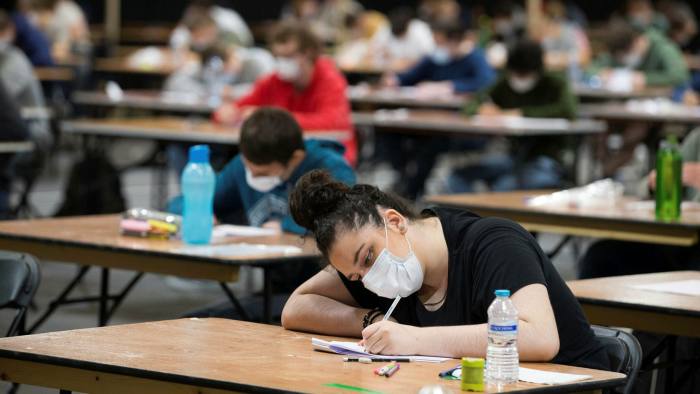The government’s new guidelines address the issues for students at third-level institutions. If students are unable to keep a distance of two meters during their lectures, they are expected to wear face coverings.
The decision was taken on the basis of a statement made by the Department of Higher Education. They has said there are circumstances in which it would not be possible to maintain a distance of two metres. The other highlights of current guidelines are:
● Develop one-way systems for indoor spaces or use marked lanes where possible
● Third-level students are supposed to be at home or in hostels if they have any symptoms.
● Students are not allowed to enter housing premises that they do not live in.
● There’s a need to identify space on campus that will allow people who experience symptoms to stay away safely from others.
● For self-isolating students an additional requirement for alternative residential space might be required.
● Lessons can be taught online. But staff members should wear face cover where two-metre distance is not possible.
Ciarán Ó hÓgartaigh, NUI Galway ‘s president said that part of the university’s priority would be to make teaching spaces secure and make spaces accessible for students to self-isolate in accommodation, where possible.
Mr. Ciarán Ó hÓgartaigh said their operations will always be subject to public health guidelines. Students are “primarily adults” so that risks in teaching spaces and more broadly outside of these environments need to be controlled and significantly reduced, he added.
He further said that NUIG is thinking of making accommodation available in pods where students share the space and only those living there will be allowed access to the accommodation.
Reacting to this the Lorna Fitzpatrick, the president of Students Union of Ireland said, there was no student representative involved in the policy making. “There is also no clarity on what happens in a scenario where students do not, or cannot, wear a face covering,” she added.
The spokesperson of Sinn Féin welcomed the government’s new guidelines. “We have to follow the health guidelines, obviously. And if we are in a situation where social distancing cannot be done and cannot be done safely, then students should be urged to wear masks in those institutions,” Rose Conway-Walsh said.
Sinn Féin spokesperson also commented that, “I really have to commend the young people for how they have responded to Covid-19 in a responsible manner. They have done everything they have been asked to do.”
Face masks or visor?
Different opinions had been shared about the face mask. Some suggest face covering is safer than a visor but others argue that it is not.
Dr. Cliona Ní Ceallaigh, an infectious disease consultant, said that there are cases of Covid-19 children who are not immune. Therefore face coverings in secondary schools should be mandatory.
In response to Dr. Clliona, St Patrick ‘s Classical School Navan ‘s principal said that wearing a mask would be possible for secondary students, but a visor would be a safer choice since a mask would be painful for a student to wear for six hours.
Dr. Ní Ceallaigh said, however, there are evidence that face masks can minimize the risk of transmitting about 80 percent, but there is no evidence for the visor.
Taking into account, the Association of Secondary Teachers in Ireland’s General Secretary said the association has written to the Minister of Education to suggest that the guidance they received on reopening schools be reviewed or modified.


Comments are closed.